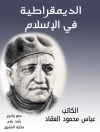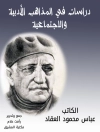The Love Books Ovid – The Love Books of Ovid is a collection of four works of Roman poet Ovids verses on love in English prose translation. Ovid, born in 43 B.C., a contemporary of Virgil and Horace, lived during the reign of Augustus and is perhaps best remembered today for his work on Roman mythology entitled The Metamorphoses. This volume collects the poets following works: The Loves, The Art of Love, Loves Cure, and The Art of Beauty. Ovid was an innovator in the writing of love poetry in that he changed the focus of the poem from the poet to love itself and examined the effect of love on people. These works were considered controversial in their time and many scholars believe that Ovids The Art of Love was the cause of his life-long banishment by Augustus to a remote province on the Black Sea. Considered to be a master of the elegy form of poetry, which are poems of lamentation and mourning, and the last of the Latin love elegists, Ovid is faithfully represented here in this English prose translation. Students of classical literature and fans of romantic poetry will both delight in this volume of works by a poetic master. This edition is follows the translation of J. Lewis May.
เกี่ยวกับผู้แต่ง
Publius Ovidius Naso (20 March 43 BCE CE 17/18), known as Ovid (/vd/) in the English-speaking world, was a Roman poet best known for the Metamorphoses, a 15-book continuous mythological narrative written in the meter of epic, and for collections of love poetry in elegiac couplets, especially the Amores (‘Love Affairs’) and Ars Amatoria (‘Art of Love’). His poetry was much imitated during Late Antiquity and the Middle Ages, and greatly influenced Western art and literature. The Metamorphoses remains one of the most important sources of classical mythology.Ovid is traditionally ranked alongside Virgil and Horace, his older contemporaries, as one of the three canonic poets of Latin literature. He was the first major Roman poet to begin his career during the reign of Augustus, and the Imperial scholar Quintilian considered him the last of the Latin love elegists. He enjoyed enormous popularity, but in one of the mysteries of literary history he was sent by Augustus into exile in a remote province on the Black Sea, where he remained until his death. Ovid himself attributes his exile to carmen et error, ‘a poem and a mistake’, but his discretion in discussing the causes has resulted in much speculation among scholars.Ovid’s prolific poetry includes the Heroides, a collection of verse epistles written as by mythological heroines to the lovers who abandoned them; the Fasti, an incomplete six-book exploration of Roman religion with a calendar structure; and the Tristia and Epistulae ex Ponto, two collections of elegies in the form of complaining letters from his exile. His shorter works include the Remedia Amoris (‘Cure for Love’), the curse-poem Ibis, and an advice poem on women’s cosmetics. He wrote a lost tragedy, Medea, and mentions that some of his other works were adapted for staged performance.












